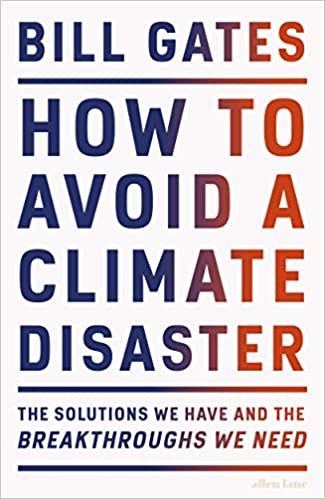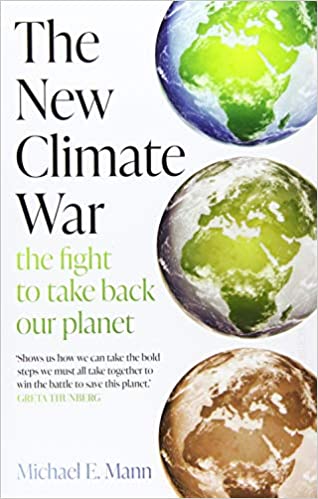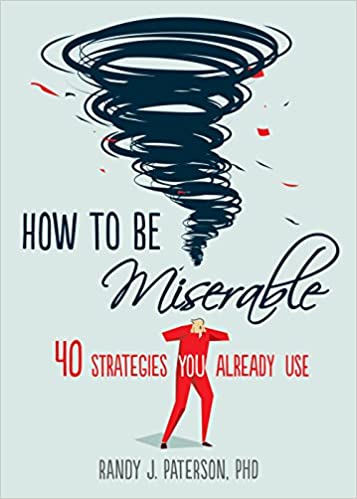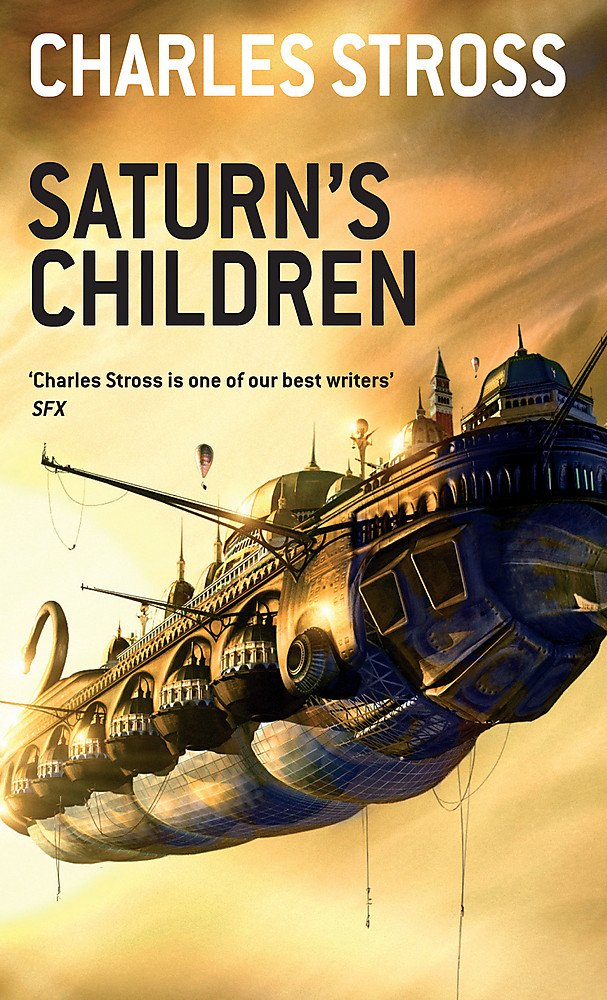Non-fiction books

How to Avoid a Climate Disaster
Bill Gates sets out an ambitious proposal for what needs to happen if the world is to meet net zero emissions by 2050: a requirement for the pathways set out in the 2018 IPCC Special Report1 to limit warming to 1.5 degrees.
How to Avoid a Climate Disaster begins with a coarse breakdown of the five major categories of human activity which emit carbon: making things, moving things, growing things, electricity, and heating and cooling. It details the problems associated with decarbonising each of these sectors; the current state of the art, promising nascent and hypothetical technologies, and the work that needs to be done in the next decade to develop and mature these technologies such that they can be scaled up to reach a 2050 goal.
It will probably come as no surprise that Bill advocates strongly for a pro-market and pro-growth strategy to tackling these issues, albeit with a pragmatic dose of government intervention via carbon taxes and green tech subsidies. This “capitalism-compatible” approach will put some off, but I, at least, came away feeling like I have a better understanding of the scale of the problem and a little more optimism than I had before.

The New Climate War
As a prominent leader in the fight against climate change denial, Michael E Mann describes in The New Climate War how the battlefront for this issue has changed over time. He details the evolution of tactics employed by anti-climate interests and presents evidence for their shift towards more insidious means over the past decade as the weight of evidence makes outright denial no longer palatable. This, he argues, makes them no less dangerous as they seek to delay action against climate change, and that an awareness of these tactics is essential to allow us to spot and counter them.
The book heavily emphasises that climate change is an urgent problem that needs our collective attention. It attacks rhetoric from both sides of the political spectrum that either claims we’re doomed, or that the solution is contingent on broader political aims like the dissolution of capitalism. As with Bill’s book, this centrist messaging will not be popular in some circles but again I felt a renewed sense of optimism after reading. Climate change is a massive challenge to overcome, and we are still capable of it.

How to Be Miserable
Reverse psychology can be a very powerful thing. In How to be Miserable, Randy Paterson outlines 40 specific techniques that are very effective at making you more depressed, more anxious, and less content with life. Yes, this is normally counter to the aims of most people. The unusual approach, however, posits that instead of thinking about how to improve your mood, considering the problem in reverse provides a whole new perspective that might motivate you to actually change your behaviour. It does kind of work: I feel like I’m now more aware of when I inadvertently use some of the 40 techniques that I’m prone to.
Fiction books

Freyaverse series (Saturn’s Children & Neptune’s Brood)
The Freyaverse series depicts a Solar System and Milky Way in the far future that have been inherited by a civilisation of “mecha” following the extinction of their human creators. The first book, Saturn’s Children, lands its gynoid protagonist into a smuggling operation that takes her to such exotic locations as the cloud tops of Venus and the icy surface of Calisto. The second, Neptune’s Brood, features an entirely separate cast of characters on an extrasolar water world (and at one point, a spacegoing charnel house!). A short story named Bit Rot2 provides a “missing link” between the otherwise two standalone plots.
The stories explore themes of immortality, inequality, sexuality, economics, and purpose, in a frequently funny and verging-on-satirical sci-fi setting. If you’ve ever wondered how an escort robot might come to terms their existence when humans no longer do or pondered how an interstellar economy might (or might not) function then this series could be for you.

Dune
I finally decided to read sci-fi epic Dune early last year before the release of the new movie in December. I was already familiar with some of its plot, characters, and tropes from having seen David Lynch’s polarising adaption many years ago. The book is a masterclass in storytelling and worldbuilding, and although it is expansive and detailed, I found that it never drags. Its sci-fi elements are esoteric yet explained sufficiently in-universe to not feel dated despite being written in the ’60s. Its political plotlines are compelling and timeless. Many reasons why this book is considered a classic.

Eisenhorn trilogy (Xenos; Malleus; Hereticus)
In the grim darkness of the far future there is only war. Or so Games Workshop would have you believe of their Warhammer 40,000 universe in which the Eisenhorn trilogy is set. Unlike Games Workshop, however, this book series is not trying to sell a tabletop wargame and is therefore able to paint a slightly more nuanced view of what the galaxy will look like in 38,000 years’ time.
Rest assured though that not all is rosy as we follow the investigations, trials, and tribulations of Eisenhorn, an Imperial Inquisitor of the Ordo Malleus. Together with his retinue he roots out the forces of alien-kind and daemon-kind. Half detective and half space western, it is very faithful to other 40k source material while adding its own unique flavour. Recommended for anyone already familiar with and enthusiastic about that universe; I’m less sure how it would be received by someone new to it.

The Alchemist
Often widely regarded, I picked up The Alchemist for some feel-good winter reading and to finally check it off my list. It’s a fable of self-discovery, of finding purpose in the world, and of overcoming the fear of following a dream. In fact, these themes are conveyed so unsubtlety throughout that The Alchemist is really a self-help book in fictional form. Depending on your mindset and where you are in life, that is not necessarily a bad thing. I found it a mostly pleasant read, and it was interesting to see self-help concepts explored in such a story. That said, by the end of the book I was growing irritated by some of the zany spirituality, cliche “power of love” tropes, and its verging on “toxic positivity”.

Heart of Darkness
Written in 1899 by Joseph Conrad, Heart of Darkness explores the brutality and hypocrisy of colonialism via an explorer’s narration and reflection of a voyage up the Congo river into the Congo Free State. The explorer becomes increasingly disillusioned by the contrast between the stated aims of colonialism–to spread civilisation–and the horrors of reality.
This disillusionment feeds into a broader sense of nihilism that is perhaps my favourite aspect of the book. The explorer has a couple of mini existential crises as he recounts his story, questioning the purpose of life and the futility of expressing one’s experiences in mere words to another person who cannot truly ever experience precisely the same thing: “we live, as we dream–alone”. The language in the book is beautiful and poetic, however I’m not ashamed to admit that I sometimes had to refer to a side-by-side translation into modern English to better understand what was going on, or to clarify my understanding.
Blog posts and articles
Embrace the Grind and
The unreasonable effectiveness of just showing up everyday
Of all the productivity porn that I read last year, the message in these two articles resonated with me the most. That is, there are often no shortcuts to success, but big achievements can be (and usually are!) made by grinding out many small achievements over a long period of time. Instinctively I know this, but it is always useful to remind myself, particularly when I get frustrated at short-term lack of progress.
8 lessons from a failed version 1
To counterbalance the previous two, it’s refreshing to see articles about people who failed to meet their goals despite putting the effort in, and the lessons they learned along the way. All too often in tech we fall for the just-world fallacy3. It’s therefore important to remain humble, acknowledge that sometimes life simply isn’t fair, and work to build resilience for ourselves and compassion towards others.
Lord of the Errors or, Who Really Killed the Witch-King?
An oldie but a goodie: Martin Andersson details the story of the hilariously flawed 1947 Swedish translation of The Lord of the Rings. Some surprising differences between this edition and canon are caused by a damning combination of the translator’s apparently poor (yet somehow non-disqualifying) command of the English language, a careless disregard for details, and by generally pushing artistic license way past its breaking point. It’s amusing to imagine Tolkien’s irritation at this butchering of his life’s work as he penned a scathing letter about it to his publisher4.
How to Make Time Slow Down
One of a bunch of articles that touch on the subject of “pandemic brain” and in particular the symptom of feeling like all days merge into one. This experience isn’t unique to the pandemic years, but the isolating effects of lockdowns definitely seem to have exacerbated it for many people.
The main theory appears to be that the brain merges similar memories into one. If there is nothing novel to remember over entire days, weeks, months, then our perception of time shrinks accordingly. Unsurprisingly given this, one of the preventative measures is to deliberately shake up your routine even in very small ways: try a different brand of cereal for breakfast, take a different route on your afternoon run, message a friend who you haven’t spoken to in a while. Other remedies include mindfully being in the present, recording memories in a journal, and most importantly practising self-compassion: time will sometimes slip away no matter what you do, there’s no point in punishing yourself for it.
Papers
Methane Feedbacks to the Global Climate System in a Warmer World
I wanted to better understand some of the science behind positive feedback loops in climate change, in particular around methane production and the possibility of a runaway process occurring5. This paper brings together a summary of biological, geochemical, and physically focused methane climate feedback literature to provide a great overview of the topic and how various different processes currently (and may in future) impact methane equilibrium.
My main takeaway from reading is in that word: equilibrium. Methane is constantly being both produced and consumed by natural processes; it is not a static thing that means any release of methane anywhere on the planet is unusual and terrible news. It’s happening all over the place all the time. Warming of the planet will certainly disturb this equilibrium by impacting both production and consumption in different ways. This is indisputably very bad, however I now realise the situation is more nuanced than warrants panic over headlines about methane bubbles in the Arctic ocean. These are not indicative of a clathrate gun firing, and indeed the authors conclude that methane hydrates are unlikely to have a significant effect on atmospheric methane levels in the near future.
An Analysis of the Potential for the Formation of ‘Nodes of Persisting Complexity’
Considering that failure to address climate change may in the worst case cause civilisational collapse, it’s reasonable to ask the question: is anywhere likely to remain (relatively) unscathed in such a scenario?
That is the question that this paper seeks to answer. It looks at the top 20 countries in the ND-GAIN index6 (ranking countries’ vulnerability to climate change) and scores them by another 3 pseudo-quantitative metrics (isolation, energy self-sufficiency, agricultural land per capita). A further qualitative analysis assesses their suitability as candidate “nodes of persisting complexity”.
Overall, it’s an interesting and thought-provoking analysis. New Zealand comes in at the top spot, suprising nobody (especially not billionaires7). Several other Western island nations fare well: Iceland, Australia (specifically Tasmania), and Ireland are all identified as having “favourable starting conditions”. The UK brings up the rear of the top 5: its large population and some reliance on high-tech energy (nuclear) counting against it.
Videos and podcasts
Software Engineering’s Greatest Hits
Greg Wilson examines the use of the scientific method to improve the craft of software development via empirically verified techniques and practices. It’s a refreshing take on a topic that so often has at best, pseudo-scientific dogma spouted as objective truth (looking at you, TDD, XP, and friends!).

The Blindboy Podcast
Blindboy Boatclub may be familiar to some as one half of The Rubberbandits, an Irish comedy hip-hop duo who rose to fame in 2010 with their viral song Horse Outside8. Since then, Blindboy has gone from strength to strength as a comedian, satirist, author, and recently, podcaster. He uses this platform, set atop a gentle piano soundscape, to present “hot takes” and research on a wide range of eclectic topics, often with an absurdist spin. Recurring themes include mental health, art, contemporary Irish society, and Irish history. Among my favourite episodes is a discussion about developing emotional resilience9, and his take on the significance of a pint of Guinness in the Irish Psyche10 has some hilariously compelling conclusions related to clerical garb.
-
http://www.antipope.org/charlie/blog-static/2013/06/short-story-bit-rot.html ↩︎
-
https://www.theguardian.com/news/2018/feb/15/why-silicon-valley-billionaires-are-prepping-for-the-apocalypse-in-new-zealand ↩︎
-
https://open.spotify.com/episode/2RqsaPtcS1tfB2rJx7cRb9?si=5183998251a149cd ↩︎
-
https://open.spotify.com/episode/6SrzvSXZ7ueFuFfwKyxh7j?si=cf0e5f2dca524656 ↩︎